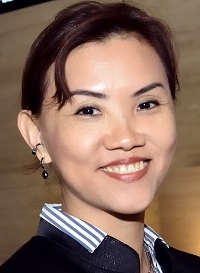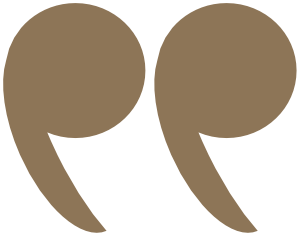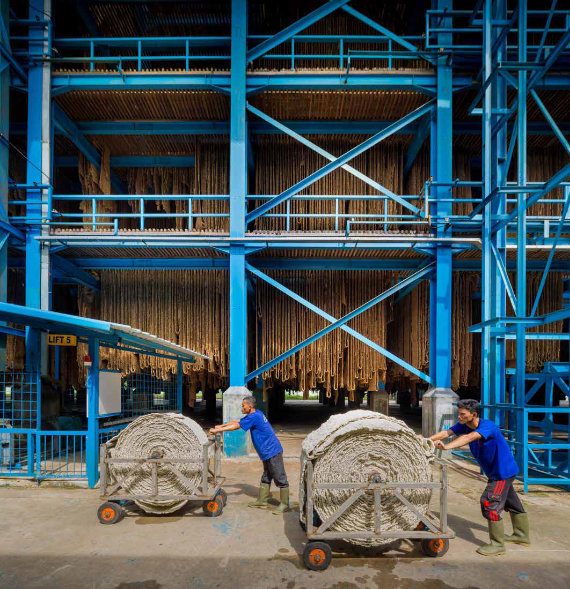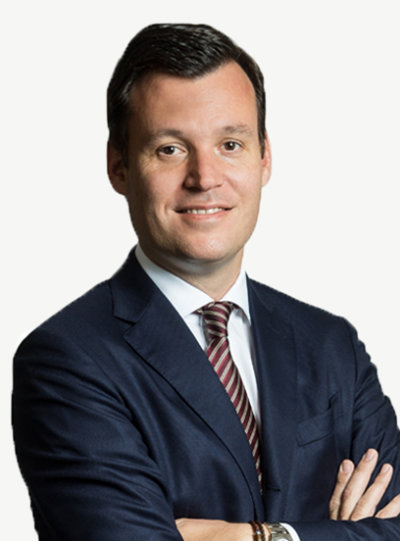 This article by Jennifer Tan (left, Director, Research & Products, Equities & Fixed Income, at the Singapore Exchange) was published in SGX's kopi-C: the Company brew series on 27 October 2017. The article is republished with permission.
This article by Jennifer Tan (left, Director, Research & Products, Equities & Fixed Income, at the Singapore Exchange) was published in SGX's kopi-C: the Company brew series on 27 October 2017. The article is republished with permission.
|
Rubber - the stretchy, durable material made from milky-white latex and found in everything from condoms to car tyres - holds a particular magic for Robert Meyer.
"By 2010, I was looking to get involved in rubber, as I've always been attracted to the industry," he said. |
Aggregating the Industry
Meyer has made it his mission to "reboot" the natural rubber industry. He believes the dichotomy between how rubber is produced, and how it is priced, presents an opportunity for Halcyon to be an aggregator in the sector.
"What our customers require in terms of technical specifications when we sell them a tonne of rubber has risen exponentially - for example, we can't supply just any kind of rubber to the tyre majors - there are numerous chemical and material parameters involved," he said.
On the other hand, the marketplace for rubber, where demand and supply forces meet, remains archaic, dominated by a commodity-pricing system.
"You have a futures market which is subject to volatility on any given day, and where the reference or closing price has nothing to do with the cost of producing rubber, or the utility it creates for our customers," he added.
|
Our aim is to integrate these assets in a sustainable manner, while at the same time, keeping a close eye on balance sheet strength and P&L results, so as not to give investors the impression that we're biting off more than we can chew. - Robert Meyer Halcyon Agri Corporation (Photo: Company) |
This dichotomy exists because the rubber barons of old were traders, playing an intermediary role between small farmers and the buying houses of tyre companies, Meyer noted.
"That trader mindset maintained the status quo. Rubber was a source of cash for them - in fact, some of the biggest family fortunes in Singapore can, in some way, be traced back to this product. But the cash got invested outside the industry, and so the industry stagnated."
Other industries like semiconductors, grains, and palm oil have already been aggregated, but not rubber. "This is the business that time forgot. So I've decided to take on that task, and for that, I created Halcyon Agri," he added.
Meyer's philosophy is simple: Round up talent in the industry, and marry this talent with the best assets that can be purchased.
"People who are familiar with the product and possess industry-specific knowledge are few and far between - because the sector has been devoid of investment for so long, it has not nurtured talent," he added.
The next step? Create a franchise based on transfer of knowledge from incumbent industry specialists to next-generation management trainees, as well as upgrading assets purchased to an industrial standard.
"That will allow us to break the outdated pricing system for the commodity, and replace it with a cost-plus pricing model. This, in turn, will reduce volatility, and level out returns on investment in the upstream segment," Meyer said.
Halcyon, in the meantime, has made big strides. "We've taken the constituent parts of what we merged last year - which were loss-making - and turned them around this year," he added.
For the six months ended 30 June 2017, the Group swung to a net profit of US$13.1 million from a net loss of US$14.3 million in the year-ago period. It has also completed a number of capital recycling initiatives, where non-performing assets, such as SIAT SA and Teck Bee Hang Co Ltd, are to be disposed and the funds set aside for new opportunities. It plans to identify additional strategic assets for sale to build its franchise.
"This is what we call the cleaning-up process, and it will generate improved income on a sustainable basis for the Group."
And the end game? To be the "Wilmar of Rubber", where Halcyon is the go-to enterprise globally for natural rubber, Meyer said, referring to SGX-listed Wilmar International Ltd, the world's largest palm oil trader.
| ♦ Driving Investment Returns | ||||||||||||||
|
In 2017, Halcyon aims to contribute 10% to 11% of global supply, with this figure rising to 15% next year. "Our ambition is to account for 20% of world supply by the early 2020s," he added.
"China is the Wild West of the rubber market - it's grown so quickly in a relatively short span of time, and accounts for more than a third of global demand," he noted. |
||||||||||||||
Velocity and Volatility
In the first nine months of 2017, global natural rubber output stood at 9.24 million tonnes, compared with total demand of 9.64 million tonnes, resulting in a shortfall of nearly 400,000 tonnes, according to data from the Association of Natural Rubber Producing Countries (ANRPC), whose members account for over 90% of global production.
Despite the shortage, a strong yen, higher inventories and a broad sell-off in global commodity markets continued to weigh on prices, ANRPC Secretary-General Nguyen Ngoc Bich wrote in a website commentary dated 10 October 2017.
The International Rubber Study Group (IRSG), an inter-governmental organisation that comprises rubber producing and consuming stakeholders, has forecast natural rubber consumption to grow 3% annually between 2017 and 2023.
 With our factory footprint, we're able to see the cost of raw materials across geographies, and this price discovery process allows us to allocate new investments into areas where we're most cost-competitive. With our factory footprint, we're able to see the cost of raw materials across geographies, and this price discovery process allows us to allocate new investments into areas where we're most cost-competitive.- Robert Meyer Halcyon Agri Corporation |
Looking ahead, volatile rubber prices remain the biggest challenge, Meyer noted.
Natural rubber sank to a low of US$1,039 per tonne in February 2016, a level last seen in 2008, according to global pricing benchmark SGX SICOM TSR20 Rubber Futures. In January this year, prices more than doubled to a high of US$2,450 per tonne, before stabilising below the US$1,500 per tonne level.
"The price is volatile because of the three futures exchanges - the largest by volume and value being the Shanghai Futures Exchange, which trades on any given day between 50% to 100% of the annual crop in underlying notional value," he added.
"With that kind of velocity, you can imagine what it means for volatility, and all of that has nothing to do with the fundamentals of rubber."
The industry typically attracts short-term, hot money seeking quick returns. This exacerbates price volatility and nullifies any discounted cashflow or financial analysis tools that can be used to forecast investment returns, he pointed out.
The result? "Long-term, healthy funds are crowded out, which in turn means the industry supply chain is underfunded."
"If the price of rubber calms down and behaves more like the price of coffee or cocoa - it can still be traded on a futures exchange, just without that excessive volatility - you will see more long-term funds coming in."
That's because the case for rubber demand growth, which is pegged to the rise of mobility, and which in turn corresponds to an increase in gross domestic product, is irrefutable.
"The use of rubber is positively correlated to GDP growth - the wealthier we get, we more we consume the product called mobility," he noted.
"Take for example, Amazon, Uber and Tesla. Their operations rely, in one form or another, on vehicles and tyres. Without rubber, their businesses would completely fall apart."
Likewise, industry consolidation is a matter of when, not if. "Everyone knows consolidation is taking place - companies like Sri Trang and Halcyon are forming very large industrial groups, all with the target of gaining 15%-20% market share. So in five to 10 years, you will probably have three big players with 20% share each, and a couple of smaller guys."
Once that happens, the hullabaloo of trading will subside. "There may still be excessive trading in rubber, but those prices will not be the ones used to determine what we sell," he added.
| ♦ Reach for the Stars | |
|
"How many start-ups do you know have accomplished as much as we have? We were able to acquire businesses so much larger than ourselves, we've done almost every corporate transaction possible, and sailed as close to the wind as we wanted," he said.
"I love driving, and I love cars - whether fast or slow, new or old - and it is this lifelong passion that has helped me understand and identify with rubber as a product," said Meyer, who drives a Porsche 911, and recently purchased a 1979 Volkswagen Beetle convertible. |
Financial results
| Year ended 31 December (US$ '000) | 2016 | 2015 | 2014 | 2013 |
| Revenue | 1,010,310 | 994,712 | 479,247 | 204,970 |
| Operating profit | 100,401 | 33,568 | -250 | 12,130 |
| Net profit / loss attributable to owners | 74,380 | 6,805 | -9,429 | 9,093 |
| Quarter ended 30 June (US$ '000) | 3QFY2017 | 3QFY2016 |
yoy chg |
| Revenue from continuing operations | 482,145 | 187,111 | 157.7% |
| Net profit / loss from continuing operations | 8,727 | -12,000 | n.m. |
| Net profit / loss attributable to owners | 1,232 | 108 | 1,040.7% |
Source: Company data
| Outlook & Risks | ||
|
||
Halcyon Agri Corporation Limited
Halcyon Agri is a natural rubber supply chain manager, supporting the world's growing mobility needs through the origination, production and distribution of natural rubber. The Group owns 33 natural rubber processing factories in Indonesia, Thailand, Malaysia China and Africa and produces sustainable, natural rubber under its proprietary HEVEAPRO brand. It distributes its products and a range of other natural rubber grades, including latex, to an international customer base through its network of warehouses and sales offices in South East Asia, China, Europe, South Africa and the United States. The Group's workforce totals nearly 15,000 people and its aggregate natural rubber distribution capacity is approximately 2 million tonnes per annum.
For its 3rd quarter results for the period ended 30 September 2017, click here.
The company website is: www.halcyonagri.com.
The ccompany's Stock Facts page is here.



